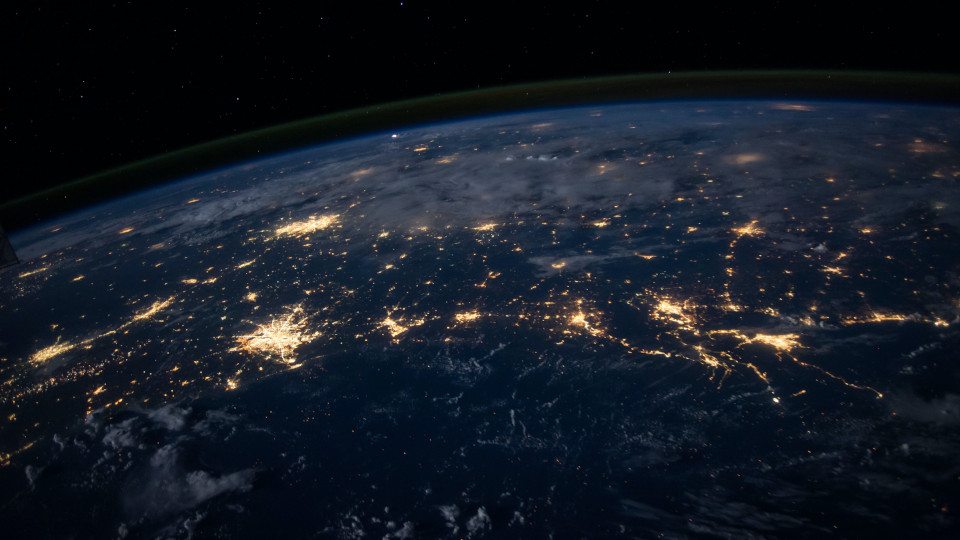You’ve heard of the Big Bang, but are you aware of the other two big bangs? Although the explosion at the beginning of time is the most famous and allegedly kicked off our universe, it turns out there are two additional beginnings that are equally important for our existence. All three big bangs have theistic implications.
Whether you believe the universe began with a Big Bang or not is irrelevant. This isn’t an age-of-the-universe argument or a debate about creation. I’m simply noting that scientists claim the universe began to exist at a moment they call the Big Bang. Whatever it was, our world did have a beginning, and Scripture even attests to that (Gen. 1:1). I’d only add that there have been two other big bangs that represent monumental transitions in our history and have brought about two significant phenomena.
Cosmological big bang: The first big bang was the kickoff. It started it all. Space, time, and matter began to exist with this epic explosion. Although initially thought to be an atheistic alternative to a Creator, the theistic implications of the Big Bang became quickly evident.
A Big Bang needs a Big Banger. You can’t get all of space, time, and matter to pop into existence without any explanation. Keep in mind that “before” the universe began to exist, nothing existed. There was no time, atoms, or space—there wasn’t even a vacuum. What, then, caused everything to begin to exist? There are only two options: nothing or something. Nothing can’t produce something, however. From nothing, nothing comes. The only alternative, then, is to suggest that something (or someone) caused the universe to begin to exist. This beginning that begs for a Creator, however, isn’t the only big bang that needs explaining.
Biological big bang: Plants and animals—once absent from existence—now populate the planet. However, how does life emerge from non-living matter? Not only must lifeless parts assemble, without help, to form living cells, but colossal amounts of program code (i.e., DNA) are necessary to create living organisms and to enable those organisms to operate properly. It’s a gargantuan step to go from non-living matter to even the simplest of living, reproducing cells. Microbiologist Michael Denton explains the challenge of bringing about a biological big bang:
We now know not only of the existence of a break between the living and non-living world, but also that it represents the most dramatic and fundamental of all the discontinuities of nature. Between a living cell and the most highly ordered non-biological system, such as a crystal or snowflake, there is a chasm as vast and absolute as it is possible to conceive.
Molecular biology has shown that even the simplest of all living systems on earth today, bacterial cells, are exceedingly complex objects…. Each is in effect a veritable microminiaturized factory containing thousands of exquisitely designed pieces of intricate molecular machinery, made up altogether of one hundred thousand million atoms, far more complicated than any machine built by man and absolutely without parallel in the non-living world….
The complexity of the simplest known type of cell is so great that it is impossible to accept that such an object could have been thrown together suddenly by some kind of freakish, vastly improbable, event. Such an occurrence would be indistinguishable from a miracle.
The transition from non-life to life represents a big bang, an explosion of life forms showing up across the planet.
Big bang of consciousness: A third unbelievable creation event is the beginning of minds. How does inert matter begin to think and become self-aware? Physical objects—no matter how complex—don’t have the capacity to reason and reflect on their own existence. At some point, however, mere matter became conscious, began to think, and now we have Da Vinci’s Mona Lisa, Beethoven’s Fifth Symphony, and Shakespeare’s writings. Consciousness burst onto the scene, and there are now billions of people to reflect upon it.
All three big bangs represent monumental beginnings of fundamentally new things that didn’t exist before: matter, life, and consciousness. Naturalists—people who deny God’s existence and believe physical or material things are all that exist—appear comfortable attributing the start of such profoundly significant creations to nothing. No one or no thing thought of, planned, or created physical matter, biological life, or conscious minds. Nothing made everything. It truly is a miracle.
An alternative scenario says something (or someone) made all things. Whatever it was, it had the power to make matter from nothing, to give life to lifeless matter, and consciousness to the mindless.
This isn’t a debate about evidence. Don’t be fooled by the old narrative where atheists claim to uphold reason, evidence, and science while Christians succumb to sly fairy tales. Both parties are looking at the same evidence. The only difference between them is the worldview by which they interpret reality. The atheists’ naturalism tells them nothing made everything, even though nothing is impotent to do or create anything. The Christians’ worldview says something (indeed someone) created all things. The fundamental divide is over worldviews, not evidence.

